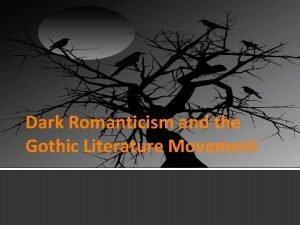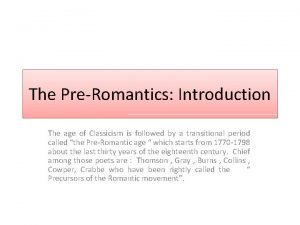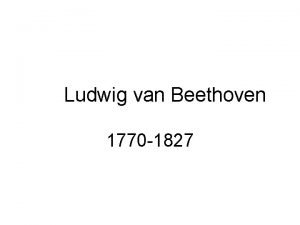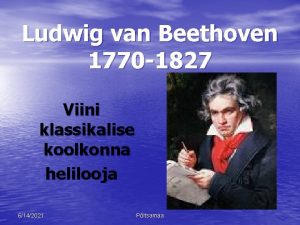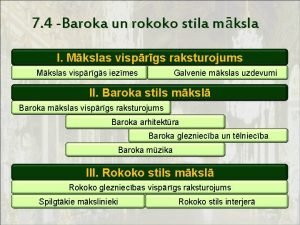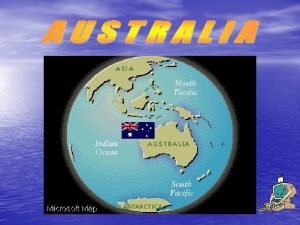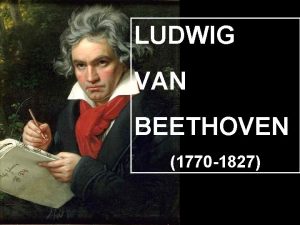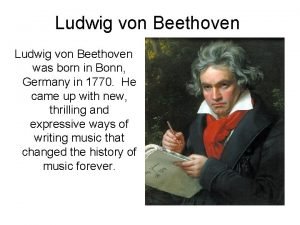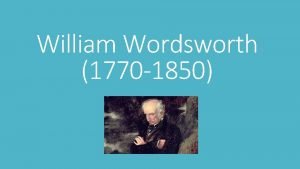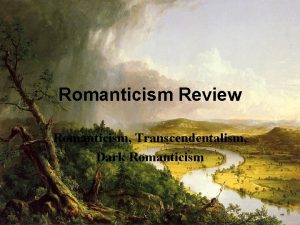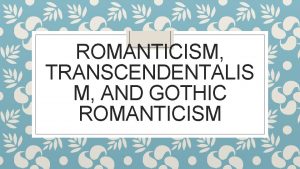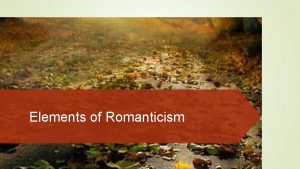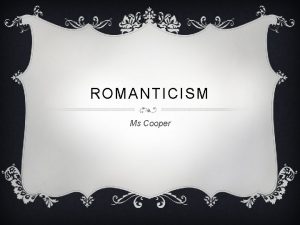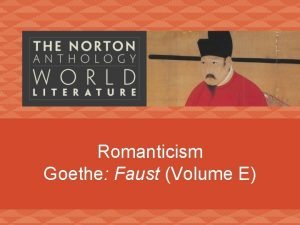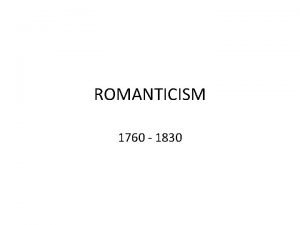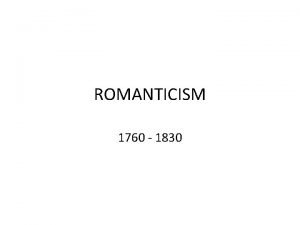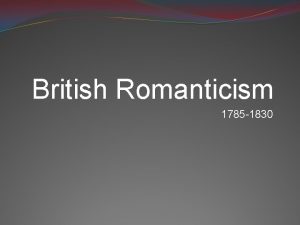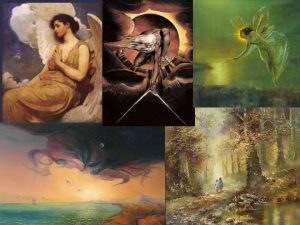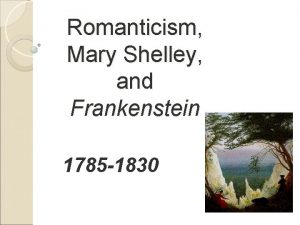Romanticism 1770 1830 1880 Introduction 1770 1830 in












- Slides: 12

Romanticism 1770 -1830, 1880

Introduction � 1770 -1830 in literature, 1880’s in music �History of ideas as a perpetual oscillation between extremes. �One mode of thought inevitably provokes its opposite. �Reaction against Enlightenment. Anticlassical. �No central doctrine. �Not against science and reason. But, there are limits to reason. �Viewed science as a great adventure into the unknown and penetrating the mystery of nature. 2

Introduction �Transformed the ways in how people saw themselves and their world. �Narrowing of outlook, from the universal to the particular – from humankind, to man, nation, ethnic group. �Emphasis on individual and national uniqueness. �Rejection of the Enlightenment ideal of balance and rationalism. �Rejection of absolute systems. Each individual must create the system by which to live. 3

Introduction �Enlightenment: Reason is the guide to certainty. Romanticism: Feeling and Imagination are the guides to authenticity. �Imagination, not Reason, is the supreme faculty of the mind. �Rejection of traditional authority. �Religious and social repressiveness are the enemy. �Authority located in the self rather than in society �Salvation lay in the overturning of established institutions. 4

Introduction �Revolution as a romantic idea. Still valid today. Revolutionaries are celebrated as Romantic characters. 5

Romantic Art and Literature �Rejected the Enlightenment ideal of balance and rationalism, readers sought out the hysterical, mystical, passionate adventures of terrified heroes and heroines. �Freedom from mechanical rules of Neoclassicism. �The concern with identity and the creation of the self are a primary concern. �Emphasis on inner (psychic) experiences. 6

Romantic Art and Literature �Evocation of strong, irrational emotions--particularly horror. �Spontaneous overflow of powerful feelings. �Romantic love celebrated as the most exalted of human sentiments. �Celebration of agonies of frustrated love. �Wallowing in the longings and disappointments of frustrated protagonists. 7

Religion �Religious revival, but not to faith. �Artists drawn to religious imagery. �Transformation of religion into a subject for artistic treatment. �Emphasis on the supernatural. �Bring God down to nature and the human heart. �Experience God in through one’s feeling. �Each individual experiences God in his own unique way. �Fallen angels. 8

Nature, Folklore and the Exotic �Nature presented as a work of art. �Nature as a home in which man can live and feel God. �Nature is a living, vitalizing force and offers a refuge from the constraints of civilization. �Nature appears in its wild, stormy moods. �Taste for local color, landscape, folklore, people. �Growing awareness of the differences between peoples and nations. �Foreign women more exotic, desirable, than the women at home. 9

The Romantic Poet and Hero �The idea of the self took on greater importance for philosophers, poets, political thinkers, novelists. �Focus is placed on the individual, society is pushed to the periphery of the action and the reader's consciousness. �Hero distances himself from society. �Sacredness of the individual. �Faith in the absolute uniqueness of every human being. Human nature is not universal. 10

The Romantic Poet and Hero �Essential goodness of human nature. Compare to the religious view. �Women, children and "primitive" people have higher capacity to feel and express emotions. �Children idealized as sources of greater wisdom than adults. �Hero: rebellious, passionate, misanthropic, isolated, has mysterious origins, lack family ties, rejects external restrictions and control, and seeks to resolve his isolation by fusing with a love object. 11

The Romantic Poet and Hero �Agonies of frustrated love. �Romantic love is the natural birthright of every human being, the most exalted of human sentiments. �Does our world have more tendencies of the Enlightenment or the Romantic view of the world? How so? 12
